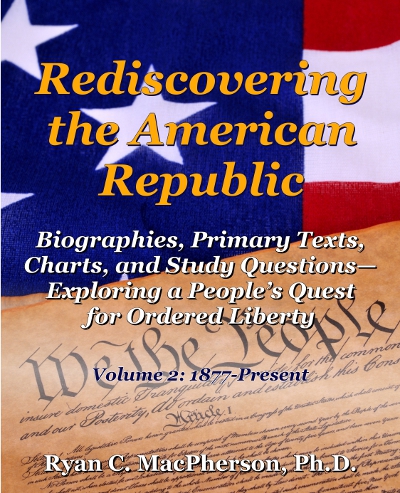Time and time again on social media, I’ve observed parents asking for a grace-based parenting book, only to hear the crickets chirping, receiving no reply. When I saw Parenting, 14 Gospel Principles in a recent catalog, I resolved to see what conservative Presbyterian Pastor Paul David Tripp had to say on the matter. I was also intrigued because it was given an endorsement by Ann Voskamp, another author whose work has inspired me. The book did not disappoint! In fact, it so fundamentally summarized the work of Christian parents that I plan to gift it to new mama friends! Here are some reflections for takeaway:
Emphases:
Christian Worldview
First and foremost, the author states that Christians don’t so much need checklists and how-to programs, but a “big, gospel parenting worldview….[This book] is meant to yank you out of the daily grind and to consider the big picture of what God is inviting you to be part of as he works in the hearts and lives of your children” (12, 20).
Ownership verses Ambassadorship
Don’t have an “ownership” view of parenting, that is motivated and shaped by what you want for and from your children, since they are actually God’s possession. Instead, have an “ambassador” view of parenting, where the focus is about what God in grace has planned to do through us in our children spiritually (14–15).
Parental Sin and Redemption
“Sin makes us all more natural owners than ambassadors. Sin makes us all more demanding than patient. Sin causes all of us to find punishment more natural than grace. Sin makes all of us more able to see and be distressed by the sin, weakness, and failure of others than we are about our own. Sin makes it easier for us to talk at other people rather than listening to them….Humbly confessing this is the first step in your ambassadorship” (16). The author also emphasizes God’s grace found in the life, death, and resurrection of Christ.
Beautiful Read
The author uses the literary devices of repetition and parallel sentence structure. He also possesses a high view of daily devotions and the prioritization of family time (chapters 1 and 14).
Doctrine:
Lutherans would peg this pastor as “right on” with many of the Bible’s important doctrines. It would be the perfect philosophical companion to the devotion book Meditations on the Vocation of Motherhood.
Original Sin
“You have no power whatsoever to change your child….In fact, nowhere in his Word has God tasked you with the responsibility to create [change]….Because changing your children is a burden that we could never bear, God bore that burden for us by sending his Son” (60–62).
“It is more natural for your children to be happy in setting themselves up as God than to willingly and joyfully submit to the one who is God….Rules are a great protection for your child, but no rule has the power to deliver your child from his foolishness….The only hope for a fool is God’s amazing, rescuing, forgiving, transforming, and delivering grace” (132).
“Your children don’t have a clue why they do the things they do. They don’t know why they resist you. They don’t know why they argue with you….Your children daily suffer from a lack of spiritual self-understanding. Parents, that’s our job. It is never enough … to mete out discipline, because you’re always dealing with something deeper than just behavior, [namely sin]” (117).
“Sin is not first a bad behavior; sin is a condition [from birth] that produces bad behavior” (176).
Law/Gospel
“Instead of approaching [my children] with self-righteous outrage, I moved toward them as a sinner in need of grace needing to confront a sinner in need of grace ” (39).
“You do not have to fear being exposed [to your children] as less than perfect because there is nothing that could ever be known or exposed about you as a parent that hasn’t already been covered by the blood of Jesus.… When you are frustrated, mad, discouraged, unkind, abusive, bitter, joyless, vengeful, or irritated as a parent, you don’t so much need to be rescued from your children—you need to be rescued from you [by Christ]” (40).
Power of God’s Word and the Holy Spirit
“Sin makes us [as parents] activate our inner-lawyers and rush to our defense when it would be better for us to listen, consider, and be willing to confess” (90).
“Each day, [parents should] look for another opportunity to advance [the Gospel message] one more step and because you do, you don’t consider those moments where correction is needed to be interruptions or hassles, but rather gifts of grace afforded to you by a God who is at work in the hearts and lives of your children” (92).
Justification/Sanctification
“God has called you to be a parent….He gives you what you need by giving you himself, and in giving you himself, he showers his amazing, forgiving, rescuing, transforming, empowering, and wisdom-giving grace down on you” (44).
“The Father’s work of justification is an event, but his work of transformation is literally, a life-long process….Parenting in not a series of dramatic confrontation-confession events, but rather a life-long process of incremental awareness and progressive change” (87).
“It’s never just about food, friends, Facebook, homework, sleep-time, clothes, household rules, or sibling squabbles. Those things are struggles because there is a deeper war going on inside the hearts of your children. Every struggles in these areas is an opportunity that is given to you by a God of amazing grace to get at those deeper issues for the sake of the redemption, rescue, and transformation of your children. And God will give you everything you need to engage yourself in that deeper war” (162).
Theology of the Cross
“[God] isn’t working so that your life as a parent would be easy, predictable, and free from struggle. He calls you to do the impossible so that in your search for help, you would find more than help—you would find him” (36).
“God will never ask you to deny the reality of your every-day, moment-by-moment parenting struggle. He will never ask you to minimize how hard it is to raise up God-fearing, God-loving, God-serving children in this terribly broken world….Biblical faith never requires you to deny reality; rather it calls you to look at all the troubling realities in your life through the lens of the awesome glory and grace of your Redeemer” (181).
God’s Unending Love
“There is never a moment, in any location, where you are in a situation with one of your children that is not under the wise, careful, and powerful control of the One who sent you into it….The One who sent you is never confused or surprised….This means that in ever moment when you are parenting, you are being parented. In every moment when you are called to give grace, you are being given grace” (187).
Critiques:
- Philosophical, not Practical: While it is a wonderful blessing that the focus of this book is Scripture, there are few examples of his Gospel-parenting principles in action.
- Negative Examples: The author uses many real and fictitious examples of parents doing the wrong thing, but not as many examples of what his philosophy would look like in action everyday. I would have appreciated more “Little Visits with God” moments described in the text.
- Baptism and Communion: The author does a great job ascribing the power due to God’s Word, but the sacraments are not mentioned. Case in point: When the Great Commission is brought up as great parenting advice, baptism as a calling of parents for their children isn’t mentioned at all (183 and 184).
- Unclear Wording: While I agreed with most of the author’s theology, there were a few sentences with unclear wording which left me unsure of theological leaning on particular topics.
Conclusion
I recommend that parents read this book! It gives the reminder that as adults, we are battling the same battles as our children, and our Heavenly Father parents us both by showering His forgiving love on us. As God’s ambassadors, our highest purpose is to share that grace with our children. And we can rest in His forgiving love for all of our parenting failures.


